Facts:
- It has been called “the silent killer” and can lead to heart disease, high blood pressure, chest pain and irregular heartbeat.
- It is linked to the six leading causes of death: heart disease, cancer, lung ailments, accidents, liver cirrhosis and suicide.
- It damages, shrinks, and kills brain cells by flooding the brain with powerful hormones that are meant for short-term emergency situations.
- It causes abdominal fat to accumulate and enlarges individual fat cells, resulting in the shocking fact that more people today die of obesity than starvation.
What am I talking about?
What is “it”?
Stress.
Of course.
We’ve all experienced it. Work, school, Karate, family, friends, free time… successfully combining all essential elements of everyday living, in our modern cycle of “life”, is not the easiest thing to do nowadays. Hence, people become fatigued – both physically and mentally.
This fatigue, then, is what we commonly refer to as stress.
See, millions of years of evolution have endowed us humans with a set of automatic weapons that take over in the event of an emergency. If you were a caveman being attacked by a tiger, your hypothalamus would send a message to your adrenal glands; and within seconds you would run faster, hit harder, see better, hear more acutely, think faster, and jump higher than you could only seconds earlier. Your heart would also pump at two to three times the normal speed, sending nutrient rich blood to the major muscles in your arms and legs, along with a host of other awesome physiological stuff and reactions.
This is Mother Nature’s way of quickly supercharging our body, designed to help level the odds between us and our attacker (in this case, a tiger).

But here’s the funny thing: In our modern society, we are rarely attacked by tigers. Yet, despite our huge amount of technological development during our evolution, we are still walking around with essentially the same set of internal body parts and functions as that of the caveman. External environment has changed a lot, internal has not.
Example: When you are at work, in the break room, hunting for coffee, gathering donuts, you might hear your boss say those dreaded words: “Could I see you for a moment in my office?”. Boom. At the sight of the tiger, er, umm…”boss”… your hypothalamus sends a message to your adrenal glands and within seconds your body summons all the same powers that your stone-age ancestor needed to fight a vicious tiger.
Crap.
You can almost feel your blood pressure soar as you take the long walk down the hall to your boss’s office. To top it off, you now remember a rumor you heard about an upcoming round of layoffs. “I might get fired!” you think, as you gradually get nearer the office. Now your mind is racing, your heart is pumping, your blood pressure is soaring, your mouth dries up, your hands feel cold and clammy, your forehead is perspiring and you may even feel a sudden urge to go to the bathroom. As you imagine your boss firing you, the caveman inside of you wants to come out. Maybe you’d like to run and hide or maybe you’d like to punch your boss in the nose, but you can do neither.
Welcome to the modern era.
As your boss ushers you into his office and closes the door, you’re experiencing a full-blown episode of the fight or flight response. Stress. But since you can’t fight and you can’t flee, all of that energy is pent-up inside of you with no place to go. It consumes you. You feel like you’re going to explode.
But all he wanted to do was promote you!
Regardless, every time your body triggers the fight or flight response, for situations that are not truly life-threatening, you are experiencing a “false alarm”. This is called stress. Too many false alarms, as we know, can lead to a ton of stress-related disorders like the facts I mentioned in the beginning, including:
- heart disease
- high blood pressure
- immune system disorders
- migraine headaches
- insomnia
- sexual dysfunction
- mood swings
So what has this got to do with Karate, then?
Well…
Somebody once asked me what I thought the meaning of “mokuso” was.
You know, mokuso, that “meditation” thing you always do (while sitting in seiza) at the beginning of Karate class, just before you collectively bow to the dojo, your sensei and/or sempai.
So, since I have never talked about it, I believe it is time:
I really think mokuso is an exercise in Karate that could prove vital to coping with stress. It is an exercise that is always performed in Japan in every dojo I’ve been to, but not always done here in the West – even though it almost seems to have been made specifically for our stressed-out 21st century brains.
Commonly translated as “meditation”, mokuso literally means “silent/still” (moku) + “thoughs/thinking” (so).
In other words, mokuso is the act of silencing one’s thoughts.
(Or, as Bruce Lee would have put it, “emptying one’s cup”.)
If you ask me though, mokuso is the act of “compartmentalizing one’s thoughts”.
The perfect antidote to stress.
See, as we modern people gradually get more and more boring work to do, while at the same time wanting more and more free time on the side, we need to start compartmentalizing stuff. Meaning, we desperately need a quick mental exercise to separate things from each other, in order to not make a mess out of everything. We need to separate business from pleasure, work from hobby, activation from relaxation. We need a mental switch to flip, so to speak.
Mokuso is the perfect thing.
“What is mokuso to you?”
I asked a couple of guys at the dojo the other day.
“Meditation”, “relaxing”, “waiting”, “setting goals”, “thinking about training”, “stillness…” the answers were numerous.
To me, it is only one thing:
Flipping the switch.
Mokuso is the act of wiping away work, friends, Facebook, e-mail, bosses, stress, teachers, school or whatever else you were doing before training from your mind, in order to focus 110% on yourself for this hour or so of Karate.
Then, when class finishes, you do the opposite.
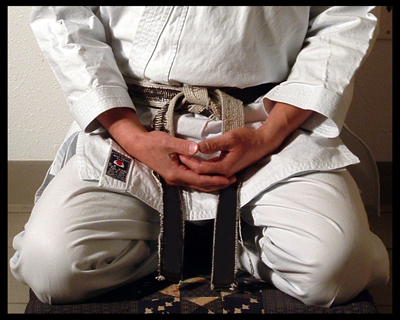
This is vital
After training, you need to mentally wipe away punches, kicks, kata details, stances, kumite combinations, kihon techniques and muscle soreness in order to go out and enjoy regular life again.
People seem to not understand this.
I mean, sure, being a Karate Nerd™ is all nice and stuff, but I personally don’t dress in Karate t-shirts on my spare time. I don’t talk Karate stuff with my friends. I don’t watch Karate movies every evening. I don’t have Karate posters on my walls. Sure, I carry over the same ethical and moral principles to my private life (as I believe everyone should), but I compartmentalize Karate practise to the dojo or other setting suited for that specific activity.
Or else I would become stressed.
(Especially since it’s my job!)
Question: Do you think a police officer has his favorite mug shots stuck to his bathroom mirror? Do you think a MD walks around with his stethoscope at the grocery store? Do you think a pilot plays his favorite flight-simulation games before bedtime? Do you think a chef loves making dinner for his family when he gets home? Do you think a part-time MMA fighter brings his grade-A asswipe personality to his regular job?
Nope.
Because if they always did, they would get stressed out.
Simple.
That’s why mokuso is equally important at the beginning and at the end of everything you do. Separate. Compartmentalize. Write lists. Delegate. Prioritize. We might be modern people, but we have ancient brains that can handle little more besides eat, sleep, eat, sleep.
Begin Karate.
End Karate.
Mokuso.
Mokuso.
And the same should apply to all the different areas of your life. Leave work at work. Leave school at school. You get the idea. And no, please, I’m not saying you should deny your identity! Karate is obviously a big part of your life (since you’ve been reading this far!). You most likely hang out with other Karate people, tell Karate jokes and watch some Kung-fu movies now and then. I sure do. You might even be a Karate instructor. That’s fine. Awesome even.
But… it’s not you.
It’s a part of you (however big).
So unless you understand why, how and when you should separate the two, I believe you might be in for a disaster down the road.
And that, my friend, is what I believe mokuso is really for.
Treat it with utmost seriousness.
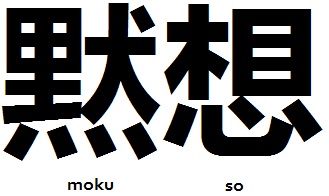
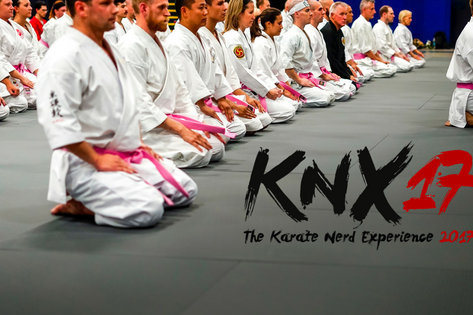
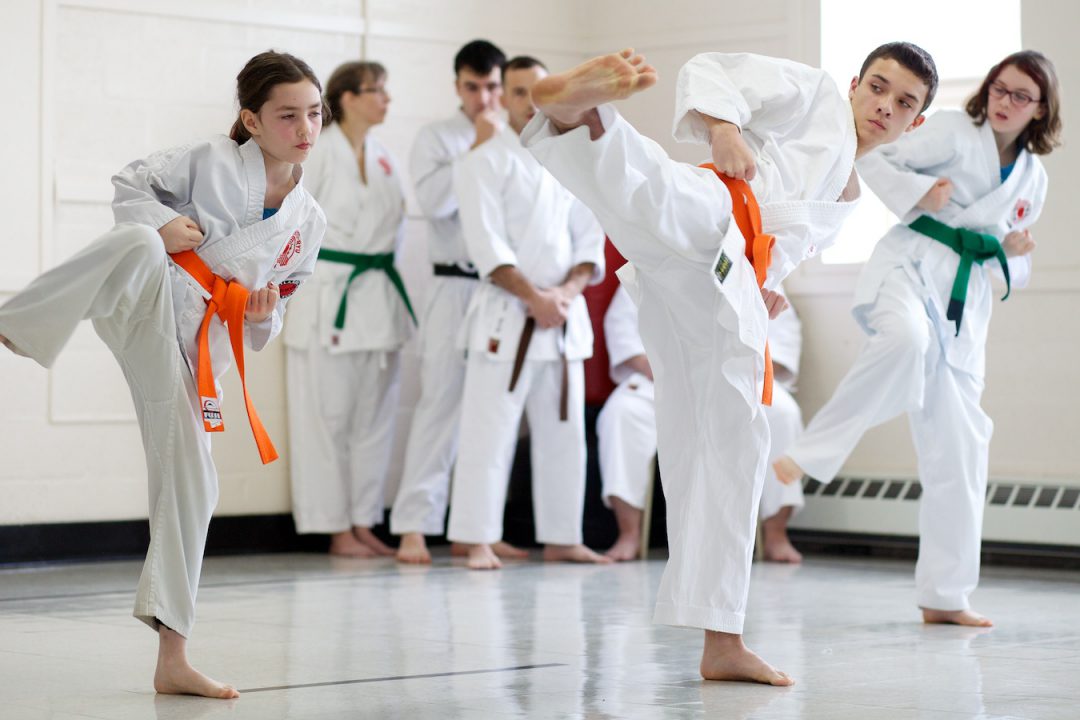
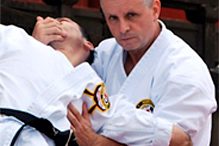
16 Comments